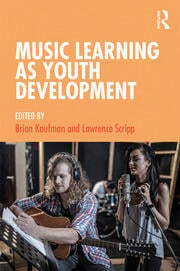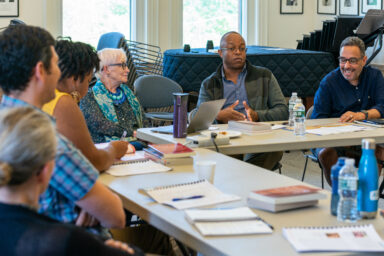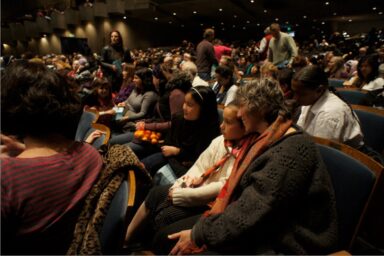The Power of Practice
A chapter by Dennie Palmer Wolf, Steven Holochwost, and Judith Hill Bose in the new volume, Music Learning As Youth Development.

Music Learning as Youth Development explores how music education programs can contribute to young people’s social, emotional, cognitive, and artistic capacities in the context of life-long musical development. International scholars argue that MLYD programs should focus in particular on the curiosity, energy and views of young people affecting the teachers, musicians, pedagogy, programs, and music with which young people interact. From fields of progressive music education, authors share their perspectives on approaches that can lead to new ways of enabling youth learners as they transition to adulthood.
A vast range of possible outcomes arising from in-school, afterschool, and community-based music programs are examined in order to highlight the aspects of youth development that music learning is particularly well-suited to support. Following an introductory essay that provides new perspectives on pursuing lifelong musical development, the volume features two primary sections. The first focuses on case studies exploring several programs through the lens of the transitional stages of music learning as youth development, helping the reader understand key concepts and explore challenges for creating music learning as youth development programs. The chapter by Dennie Palmer Wolf, Steven Holochwost, and Judith Hill Bose, “Making Music, Promoting Development: The Power of Practice” can be found in section one. The second section addresses the broad implications and policy issues of programs described, including discussing why music learning should be conceived of as critical to formative stages of youth development that can lead to a productive and fulfilling life. The conclusion synthesizes the range of perspectives provided by eight contributors and offers implications for life-long human development through music in the 21st century.
Most arts education programs have focused on transmitting skills and proficiencies in their specific disciplines and graduating talented students doing high-quality work. Despite the growing momentum behind the claims that ensemble music can drive social and emotional growth, we have only initial, and largely correlational, evidence for the impact of music, or music as a part of broader arts education programs, on these forms of development.
From 2015 to 2019, a team of teaching artists and researchers from WolfBrown and Longy School of Music of Bard College worked closely with program staff at 12 collaborating El Sistema-inspired sites across the United States to track the development of their students. The ensemble and collaborative nature of instrumental music has led advocates, policy makers, and an increasing number of researchers to claim substantial impacts, particularly in the realm of young people’s socioemotional development.




